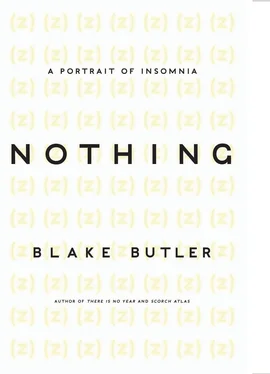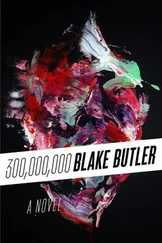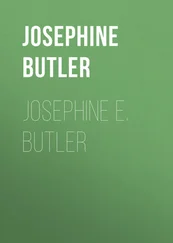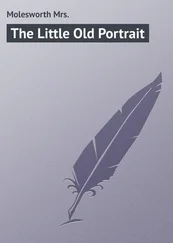The effect is not destruction, but reordering, renegotiation of the content and interaction with our other household , the electronic rooms where we store not only our digital identity information (credit cards, numeric values, browser cookies, even background wallpaper and design), but also the more abstract or self-negotiated tokens (Word files, pictures, image of self). The computer, in some way, has become the most direct avatar of the user — show me your desktop and I can likely glean a dozen things about you, from sense of order to priority to interests and ideas. A computer is, in some sick but honest way, a child — an amputated mirror of the self we interact with via buttons, cameras, microphones, and light. This is not the case for all bodies, surely, as some can hide out, but it is more the case than at any point before, and perhaps more so than we’d like to imagine. Even JODI talking about the overlay interface of OSS seems like some handbook to a waking: “There is no About or Read.me file, just this grid of folders. It is a stress situation, some people try to deal with it, others want to get the CD out as fast as possible but then realize there is no CD icon and it gets even worse.”187
Brian Eno explores this sort of self-mesmerizing concept even more demonstrably in his sound and video project 77 Million Paintings , which combines an enormous database of randomly combined generations of color, light, and tone to create an aural chamber. The work is composed actually of only 296 works that in collage and juxtaposition, along with the layers of sound, develop a field that seems to the viewer (and the creator) to be ever-shifting, but is actually mathematically rather small: a mistakenly finite infinitude. According to Eno, one would have to watch the program for 450 years to see a repeat. This confined but massive rubric, he says, drums power from a reversal of “the supposition that you can always hear something again. We’re so used to recordings. The last 120 years of human history have been this tiny little blip… where suddenly we could have identical experiences again and again.”188 In this way 77 Million Paintings models an insomnia enslaved, the endless spooling busy brain of a sleepless meat at night, parsing and reparsing the same terrain into new glyphs. As though in the head the parsing ramifications and wrinkles rooms seem to go on and on in all ways therein forever, ultimately the branching and unbranching all leads back to the same center, the brain space occupying a negligible 2 percent of any human’s weight.
Though it has always been this way — translucent rhizomes and complex histories set on any air, and the brain endlessly wanting and not succeeding in defining itself within — the package of the junk from which we might select our elements grows only larger, and more readily awaiting, and more there. The internet itself becomes another realm of endless hive meat over the always waking 24/7/365 bright-lit gorge. Not only are we now dealing with the hours of our experience and seeing, the residues of every person’s person hung like unseen curtains over every inch where we inhale, there is also now a second, electronic looming, rooms buried and married to all rooms, a silence seeping of some nothing, renaming names inside our sleep, or at least gone. Toggling between the Google SafeSearch feature’s levels of access — two modes adaptable by any user, with a third offering “moderate” coverage between the two — quickly reveals the onslaught of fuck and feces connectable to most any search. Google mother and in the first page of image results (at the time of this writing) you get a picture of a nude dude ramming his cock into a young girl’s face while another, older woman lies back on the bed to watch. This next to a picture of somebody’s grandmother with a thank-god-someone-still-loves-me face, holding flowers and wearing pearls. Though we no longer need to remember all the information we once had to store inside our heads in order to make it useful, the definitions we might gather in the same name are all gyrating.
From enough distance overhead everything appears the same. The way on Google Maps the cursor’s tiny outstretched hand clenches the earth before you drag — the leaning diamond-shaped eye hidden over each and every one of our houses, capturing that air in database-made air. The weird looming patches of gray blank space over new area as the browser waits to load. Google-mapping “hell” actually tenders a result: “We don’t have imagery at this zoom level for this region.” A search for “heaven” returns 2,894 locations. Photographs of photographs, to be zoomed in on or out from, made into directions, toured, printed out.
For all the hours held inside us, and the vertices of potential other ways those hours could have been spent — a splitting unto infinite splitting — there are also all the doors and paths held over us, on our exterior. Watching. Waiting. When. For what. That there could never be an answer becomes as well the innards of the question — the bloodlight of the word itself. Because you wouldn’t want to know. Because you could not. Because, given the answer, the light inverts. Becomes a no light. And then these houses — folding on a fold. “I can’t jack off without history peering in,” writes Johannes Göransson.189 And too, the air and walls and endless doors — and the out-of-doors. The excess breathing, the history of any dot, or any word around where it’s been placed.190 Here where after erasing the word “mother” in the search bar and instead typing the address of the house where this sentence is being written into Google search leads me to hover over the terrained image of the house, inside of which, one might imagine, I could also be sitting, in my underwear, glowed on by this screen. According to the current map, there are three cars parked outside my house. Two of colors I don’t recognize. Another waiting in the street. This moment frozen in representation of the place wherein which my body matured, grew older, large. Who said you could have that? The roof over what is mine. Why doesn’t Google see inside the house, forever? Google Attic. Google Mind. Enmapped: a rash of trees like enormous broccoli grown over a section of our roof. Whole sections where trees cover the screen from end to end entirely — a huge crudded maze of green. Other cars on other streets unmoving as if we all went still at once. What people hidden in this picture, beneath these roofs or blending in. What, unknowing, is contained — like the Magic Eye paintings sold in most every mall, which I’ve never been able to make work. Look again. Out of this chaos might emerge a landscape. Within this skin there is a seam. A watching without a blinking. A kind of map of sleep that does not sleep.
Down the street here in this rendition of the miles around where I grew up there is the church where I was baptized, where later the troop leader of my Boy Scout group showed me his stab wound to prove how I should listen. Staring at the church’s image here again today from this false overhead, I can’t help but want to move further there into — to crease the page of screen and enter. I zoom until its face is wholly splotch: pixels larger than their data. The window tonight is not cold. The light inside the house against the night again makes it difficult to see anything but me. I see my face there, as if through the window looking in, as if waiting for me to open the glass and allow entry. My eyes. The size of the church since then has at least doubled — the way all modern churches seem to, eating $$$$—you can read its new countenance from the street, the pervading hulk of it that much larger, longer, as if it’s adhered to the air it once only inhabited, in surround.
Читать дальше












